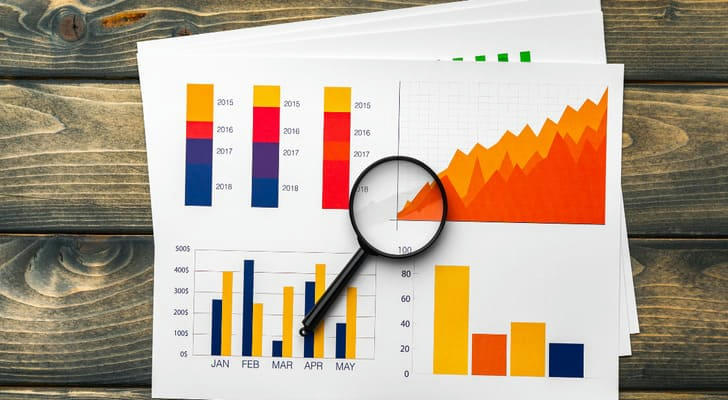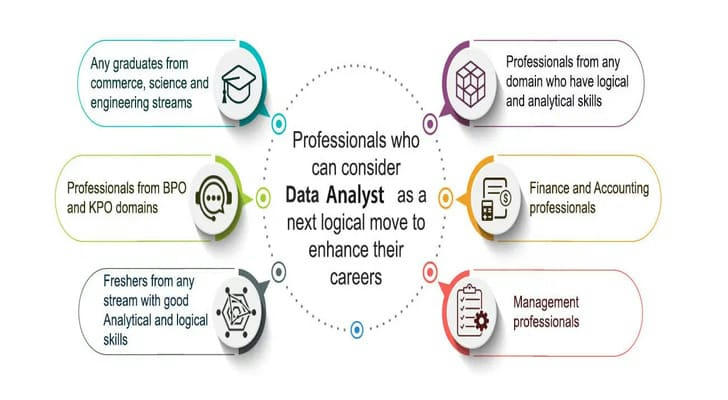Data Analytics: Why It’s the Most In-Demand Job Right Now

In today’s fast-paced business world, data has become the cornerstone of decision-making. Companies across various industries increasingly rely on data to optimize operations, improve efficiency, and maintain a competitive edge. As data becomes more integral to business operations, the demand for data analysts has surged. Data analysis not only helps businesses make informed decisions but also provides valuable insights into market trends, customer behavior, and operational bottlenecks.
Industry Reports and Growth Projections
Industry reports consistently confirm the rapid growth in demand for data analysts. According to the U.S. Bureau of Labor Statistics (BLS), employment for data analysts is expected to grow by 35% from 2021 to 2029, significantly faster than the average for all occupations. This surge in demand reflects businesses' increasing reliance on data-driven decision-making. Additionally, a recent study by Burning Glass Technologies revealed that 50% of data analyst job postings require proficiency in tools like SQL and Excel, underscoring the high demand for these skills. Data analysis skills are becoming essential across many high-demand industries, including technology, finance, healthcare, and retail.
The Current State of the Data Analytics Industry
The rapid growth of data analytics is closely tied to the increasing digitalization of industries. Nowadays, companies rely heavily on data to drive their operations and market strategies, which has led to a growing need for data analysts. Data analysts play a key role in helping organizations extract meaningful insights from vast amounts of data, which can be used to inform business decisions. This demand for data analytics is not limited to large tech companies but also extends to small and medium-sized businesses, all of which recognize the importance of data-driven insights.

Core Responsibilities of Data Analysts
The work of a data analyst encompasses several core areas, including:
Data Cleaning: Ensuring data is accurate and consistent.
Data Mining: Extracting useful information from large datasets.
Trend Analysis: Identifying patterns and trends in data.
Data Visualization: Presenting data in a visually understandable format.
For companies, the ability of data analysts to extract actionable insights directly influences the quality and effectiveness of business decisions, helping them maintain a competitive edge in the market.
The Role of Google’s Data Analytics Certification
With the rising demand for data analysts, various training programs have emerged, one of which is Google’s Data Analytics Professional Certificate. This course is designed to help individuals who are new to the field of data analytics acquire essential skills in data analysis. The course is ideal for beginners and covers topics such as data collection, cleaning, analysis, and visualization.
Course Content
The course includes the following key areas:
Data Collection and Organization: Learn how to gather and organize data for effective analysis.
Data Cleaning and Processing: Understand how to clean data, handle missing values, outliers, and duplicates to ensure high-quality datasets.
Data Analysis Tools: Learn to use tools like Excel and SQL for hands-on data analysis.
Data Visualization and Reporting: Discover how to turn raw data into actionable insights using charts and graphs.
Introduction to R and Python: While designed for beginners, the course introduces basic concepts in R and Python for more advanced data analysis.
This certification is particularly suitable for individuals looking to enter the field of data analytics without a technical background. The course is designed to be completed in 30 days and offers flexibility for individuals with full-time jobs or other commitments.
Learning Duration and Flexibility
Google’s Data Analytics certification is designed to accommodate busy schedules. Each module includes lessons, tasks, and hands-on projects that help learners apply their knowledge to real-world situations. On average, students spend 5 to 10 hours per week on the course, and it can be completed in just 30 days.
This flexibility makes the course ideal for those who are employed full-time or have other commitments. The hands-on approach ensures that learners can immediately apply what they’ve learned to practical scenarios, thus gaining valuable, job-ready experience.
Career Transitions: Real Success Stories
Many individuals have successfully transitioned into the field of data analytics after completing Google’s Data Analytics certification. For instance, Sarah, a former customer service representative, had no prior experience in data analysis but enrolled in the course to switch careers. After 30 days of study, she learned essential skills in data cleaning, analysis with SQL and Excel, and data visualization. With her newly acquired skills, Sarah secured a data analyst position at a financial services company.
Similarly, John, a retail manager with no background in data analytics, completed the course and quickly applied his new skills in a hands-on project. Within weeks, he received an offer from a marketing firm for a junior data analyst position.
These examples illustrate how individuals with no prior experience can leverage the Google Data Analytics certification to transition into new careers and secure more advanced job opportunities.

Advantages of Google’s Data Analytics Certification
No Degree Required: The Google Data Analytics certification does not require a college degree or any specific technical background. This makes it a great option for people entering the job market or switching careers.
Industry Recognition: Google is a globally recognized brand, and its certification is highly valued by employers. Many major companies, especially in tech, finance, and consulting, view this certification as evidence of relevant skills.
Cost-Effective: Compared to traditional degree programs, Google’s certification is more affordable, providing great value for the skills acquired.
Practical Learning: The course focuses on hands-on learning through real-world projects, which helps students gain experience that directly applies to their careers.
How the Certification Enhances Career Prospects
Completing the Google Data Analytics certification significantly boosts your employability. As data analysis is a fast-growing field, possessing core skills such as data cleaning, SQL proficiency, and data visualization can significantly improve your job prospects. The hands-on projects completed during the course also provide real-world experience, which enhances your resume and makes you more competitive in the job market.
Career Path After Certification
Once you complete the Google Data Analytics certification, you can pursue various roles such as:
Data Analyst
Business Analyst
Market Researcher
Product Analyst
As you gain more experience, you can move into higher-level positions, such as Senior Data Analyst, Data Scientist, or Business Intelligence Manager. The field of data analytics offers excellent career growth opportunities. As professionals continue to refine their skills, they can move into strategic roles that provide valuable insights to businesses.
Conclusion
The Google Data Analytics Professional Certificate offers an accessible and efficient way to break into the high-demand data analytics field. In just 30 days, learners can acquire valuable skills that will open up new career opportunities. Whether you're new to the workforce or looking to make a career change, this certification provides a flexible, affordable path to entering one of the most in-demand industries today. With hands-on learning, you'll be well-equipped to succeed in the data-driven world of business and technology.
